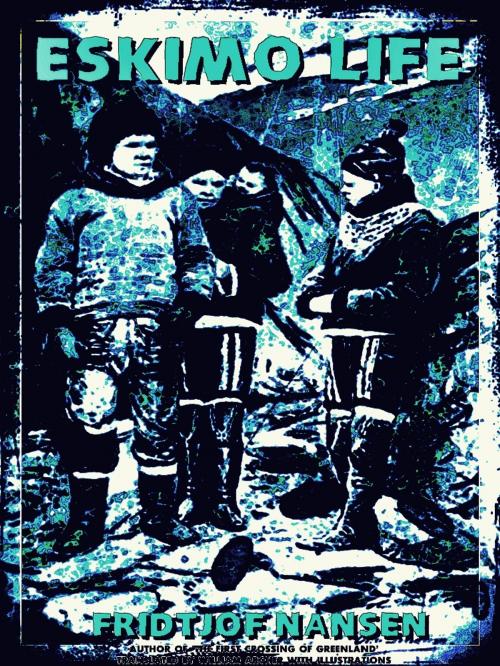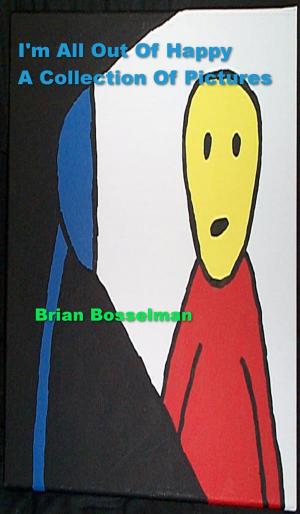Eskimo Life (IIlustrations)
Kids, Natural World, Ecosystems, Environment, People and Places, History| Author: | Fridtjof Nansen, William Archer | ISBN: | 1230000270651 |
| Publisher: | London: LONGMANS, GREEN, AND CO. and NEW YORK: 15 EAST 16th STREET | Publication: | September 27, 2014 |
| Imprint: | Language: | English |
| Author: | Fridtjof Nansen, William Archer |
| ISBN: | 1230000270651 |
| Publisher: | London: LONGMANS, GREEN, AND CO. and NEW YORK: 15 EAST 16th STREET |
| Publication: | September 27, 2014 |
| Imprint: | |
| Language: | English |
Example in this ebook
For one whole winter we were cut off from the world and immured among the Greenlanders. I dwelt in their huts, took part in their hunting, and tried, as well as I could, to live their life and learn their language. But one winter, unfortunately, is far too short a time in which to attain a thorough knowledge of so peculiar a people, its civilisation, and its ways of thought—that would require years of patient study. Nevertheless, I have tried in this book to record the impressions made upon me by the Eskimo and his polity, and have sought, as far as possible, to support them by quotations from former authors. There may even be things which a newcomer sees more clearly than an observer of many years’ standing, who lives in their midst.
On many points, perhaps, the reader may not[viii] think as I do. I cannot, it is true, find that whatever is is very good; I am weak enough to feel compassion for a declining race, which is perhaps beyond all help, since it is already stung with the venom of our civilisation. But I comfort myself with the thought that at least no words of mine can make the lot of this people worse than it is, and I hope that the reader will accept my observations in the spirit in which they are written. Amicus Plato, amicus Socrates, magis amica veritas—the truth before everything. And if in some points I should appear unreasonable, I must plead as my excuse that it is scarcely possible to live for any time among these people without conceiving an affection for them—for that, one winter is more than enough.
During the long, dark evenings, as I sat in the low earth-huts and gazed at the flame of the train-oil lamps, I had ample time for reflection. It often seemed to me that I could see these hardy children of Nature pressing westward, stage by stage, in their dog-sledges and in their wonderful skin-canoes, along the barren ice-coasts; I saw how they fought their way onward, and, little by little, perfected their ingenious[ix] implements and attained their masterly skill in the chase. Hundreds, nay thousands, of years passed, tribe after tribe succumbed, while other and stronger stocks survived—and I was filled with admiration for a people which had emerged victorious from the struggle with such inhospitable natural surroundings.
But in melancholy contrast to this inspiriting picture of the past, the present and the future rose before my eyes—a sad, a hopeless mist.
In Greenland the Eskimos fell in with Europeans. First it was our Norwegian forefathers of the olden times; them they gradually overcame. But we returned to the charge, this time bringing with us Christianity and the products of civilisation; then they succumbed, and are sinking ever lower and lower. The world passes on with a pitying shrug of the shoulders.
‘What more can one say? Who’s a penny the worse
Though a beggar be dead?’
But this people, too, has its feelings, like others; it, too, rejoices in life and Nature, and bleeds under our iron heel. If anyone doubts this, let him[x] observe their sympathy with one another, and their love for their children; or let him read their legends.
Whenever I saw instances of the suffering and misery which we have brought upon them, that remnant of a sense of justice which is still to be found in most of us stirred me to indignation, and I was filled with a burning desire to send the truth reverberating over the whole world. Were it once brought home to them, I thought, people could not but awaken from their indifference, and at once make good the wrong they had done.
Poor dreamer! You have nothing to say which has not been better said before. The hapless lot of the Greenlanders, as well as of other ‘native’ races, has been set forth on many hands, and always without avail.
To be continue in this ebook
Example in this ebook
For one whole winter we were cut off from the world and immured among the Greenlanders. I dwelt in their huts, took part in their hunting, and tried, as well as I could, to live their life and learn their language. But one winter, unfortunately, is far too short a time in which to attain a thorough knowledge of so peculiar a people, its civilisation, and its ways of thought—that would require years of patient study. Nevertheless, I have tried in this book to record the impressions made upon me by the Eskimo and his polity, and have sought, as far as possible, to support them by quotations from former authors. There may even be things which a newcomer sees more clearly than an observer of many years’ standing, who lives in their midst.
On many points, perhaps, the reader may not[viii] think as I do. I cannot, it is true, find that whatever is is very good; I am weak enough to feel compassion for a declining race, which is perhaps beyond all help, since it is already stung with the venom of our civilisation. But I comfort myself with the thought that at least no words of mine can make the lot of this people worse than it is, and I hope that the reader will accept my observations in the spirit in which they are written. Amicus Plato, amicus Socrates, magis amica veritas—the truth before everything. And if in some points I should appear unreasonable, I must plead as my excuse that it is scarcely possible to live for any time among these people without conceiving an affection for them—for that, one winter is more than enough.
During the long, dark evenings, as I sat in the low earth-huts and gazed at the flame of the train-oil lamps, I had ample time for reflection. It often seemed to me that I could see these hardy children of Nature pressing westward, stage by stage, in their dog-sledges and in their wonderful skin-canoes, along the barren ice-coasts; I saw how they fought their way onward, and, little by little, perfected their ingenious[ix] implements and attained their masterly skill in the chase. Hundreds, nay thousands, of years passed, tribe after tribe succumbed, while other and stronger stocks survived—and I was filled with admiration for a people which had emerged victorious from the struggle with such inhospitable natural surroundings.
But in melancholy contrast to this inspiriting picture of the past, the present and the future rose before my eyes—a sad, a hopeless mist.
In Greenland the Eskimos fell in with Europeans. First it was our Norwegian forefathers of the olden times; them they gradually overcame. But we returned to the charge, this time bringing with us Christianity and the products of civilisation; then they succumbed, and are sinking ever lower and lower. The world passes on with a pitying shrug of the shoulders.
‘What more can one say? Who’s a penny the worse
Though a beggar be dead?’
But this people, too, has its feelings, like others; it, too, rejoices in life and Nature, and bleeds under our iron heel. If anyone doubts this, let him[x] observe their sympathy with one another, and their love for their children; or let him read their legends.
Whenever I saw instances of the suffering and misery which we have brought upon them, that remnant of a sense of justice which is still to be found in most of us stirred me to indignation, and I was filled with a burning desire to send the truth reverberating over the whole world. Were it once brought home to them, I thought, people could not but awaken from their indifference, and at once make good the wrong they had done.
Poor dreamer! You have nothing to say which has not been better said before. The hapless lot of the Greenlanders, as well as of other ‘native’ races, has been set forth on many hands, and always without avail.
To be continue in this ebook

![Cover of the book History Of The Consulate And The Empire Of France Under Napoleon Vol. VII [Illustrated Edition] by Fridtjof Nansen, William Archer](https://www.kuoky.com/images/2016/march/300x300/9781786259141-jDkU_300x.jpg)













